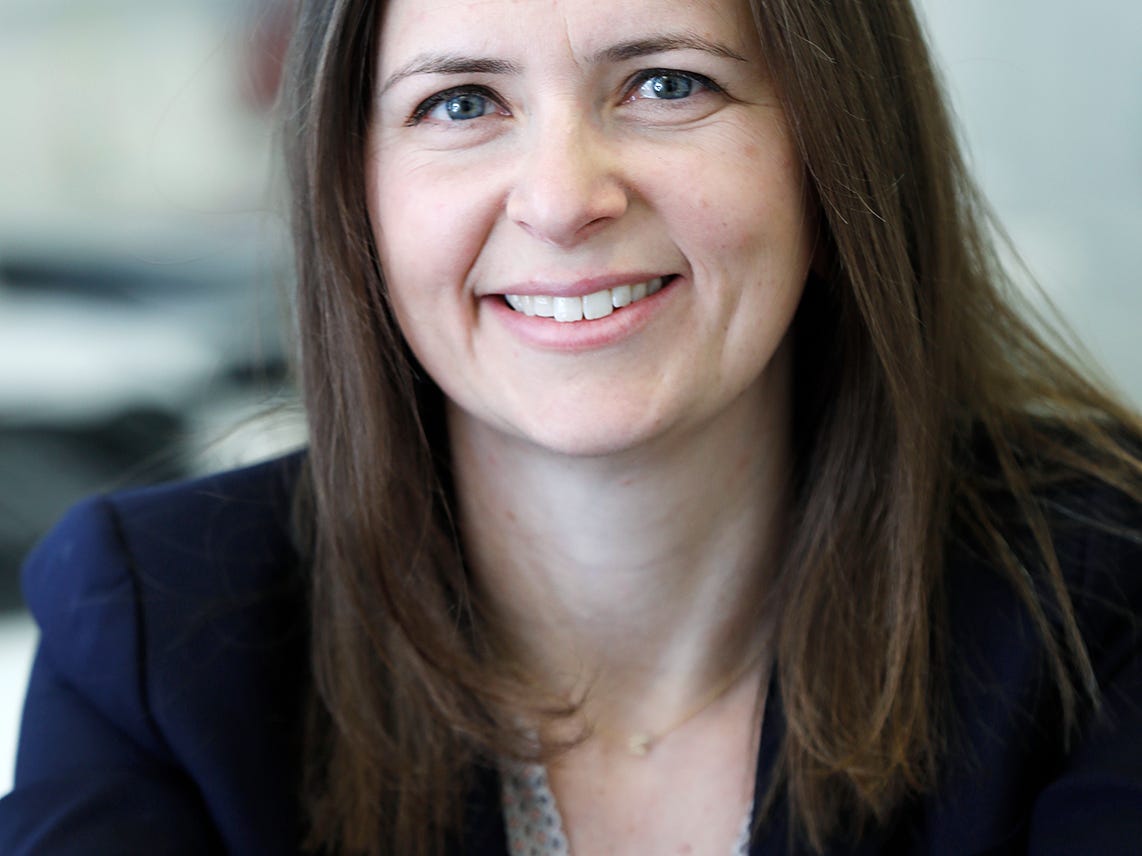
Siemens
- Marsha Smith, the CFO of Siemens USA, says modernizing financial technologies boosts efficiency.
- Smith emphasized that the drive to advance digitalization must come from C-suite leaders.
- The right organizational mindset toward finance modernization is crucial, Smith told Insider.
- This article is part of the "Innovation C-Suite" series about business growth and technology shifts.
For more than 160 years, Siemens USA has developed innovative technologies that support America's critical infrastructure and vital industries. These technologies include auto manufacturing, mining industry solutions, and smart hospitals.
But according to Marsha Smith, the chief financial officer of Siemens USA, modernizing internal financial technologies and processes – from accounting to payroll – is essential for every organization, no matter how old or young the company is.
"If you don't advance digitalization in finance and find new ways to do old things more effectively and efficiently, it's hard to attract talent," she said. While automation is often perceived as a massive transformation over decades, Smith added that individuals at Siemens USA are implementing new tools and processes all the time. "You need to make it exciting to come to your company and come up with new ways to do the same work," she said.
The drive to advance digitalization in finance, however, must be a top-down initiative. "If it's not a message that's constantly being communicated to the organization, people won't see it as a real need," she said. The ideas, however, need to come from the bottom up: "Leaders have to open the door for their people to share ideas."
Smith offered three tips for how C-Suite leadership can help shape a modern, automated future in finance:
1. Change the mindset around how people work
"People need to be willing to change how they work in order to work smarter," Smith said. That means CFOs must focus on a different type of finance talent that works very closely with the IT department and already has knowledge of digital tools and processes. "One important thing I've learned along the way is that just because you implement a robot to do certain tasks for an individual that doesn't mean the headcount is necessarily less," she said. "It's about hiring thinkers that can work across the company to transform finance as much as the rest of the company."
2. Take one step at a time
Advancing finance digitalization doesn't need to be (and can't be) a massive one-and-done program, Smith said. Start with small projects, she explained, and take it one step at a time: "I think the low-hanging fruits, such as optimizing invoicing, purchase orders, or other workflows, are the most exciting ones," she said. Even with a small starting point, she added, "people get excited when their tasks that used to take them two hours to do only take them 30 minutes to do right, and then they buy into it." Slowly but surely, a whole group of employees will believe in what the CFO is pitching. "They see the impact on their daily work," she said.
3. Understand the new CFO role
Finance leaders no longer fit a typical old-school profile. "We all need to understand technology enough to work across the organization to make good collective decisions," Smith said. "What I've tried to do is at least open up the conversation to say, let's find the automated tools and processes that are scalable, even though it's a challenge since I'm not an expert on all the tools out there." To that end, the CFO needs to employ team members with different skill sets. "They may have in-depth knowledge of accounting and finance, but we also need people who can improve on how we implement new automation technologies," she said.
Overall, the amount of automation in finance has increased over time and continues to improve, which is crucial for the modern financial organization of the future, Smith said. As the CFO at Siemens USA, it's important to lead with an eye toward getting people in different departments to learn from each other, and then scale those efforts, she explained.
"This comes from the top down, with our global CFO driving automation initiatives," she said. "Then, it's exciting for me to get to know the people in our company and how they are automated processes every day, whether it's in accounting or in some other department."
It all goes back to a C-Suite leadership that is willing to embrace change to stay competitive in a modern, automated world of finance. "Siemens is on its way to becoming more of a solution-oriented, ecosystem-oriented company and not just a conglomerate that sells hardware, so the whole company is changing," Smith said. "The finance organization has to change with it."

